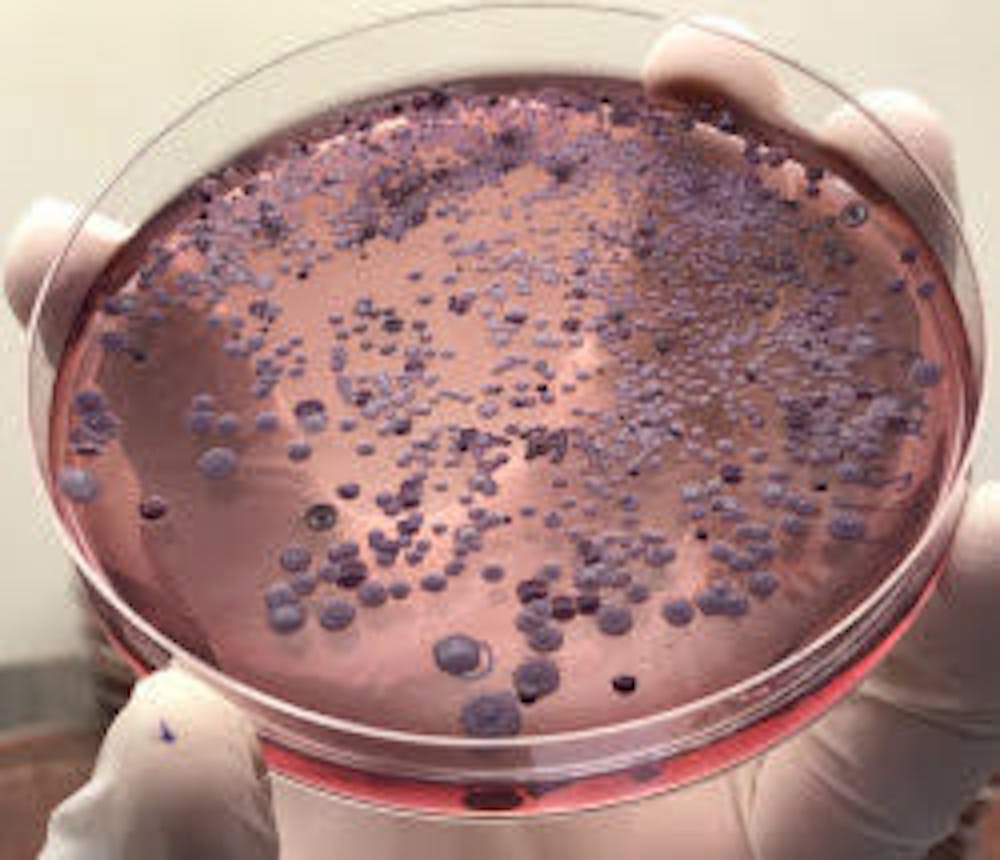A team of UF researchers discovered two molecular compounds that can fight off melioidosis, a potentially fatal disease.
Research conducted by UF’s Emerging Pathogens Institute, along with University of California, Los Angeles colleagues, discovered the compounds burkfloxacin (a type of antibiotic) and flucytosine (a drug used to fight fungal infections) kill the bacteria that cause melioidosis, and can prevent it from spreading to other cells.
Herbert Schwiezer,a UF professor of molecular genetics and microbiology who participated in the research, said the study was one of a kind due to the way the molecules had been tested.
“[The researchers] said, ‘Let’s infect the cells first, and then let’s look for molecules that are now inhibiting the bacterium and after they got into the cell,’” Schwiezer said.
Researchers used a “mouse model” to first inject the bacteria into mouse cells during the screening process to ensure that the antimicrobial agent could permeate through, he said. The two novel compounds were then found out of over 220,000 screened molecules using a “high-throughput cell-based test.”
Working alongside Schweizer was Apichai Tuanyok, a UF assistant professor of infectious diseases and immunology currently conducting research at the Emerging Pathogens Institute.
Tuanyok, who contributed research toward the molecule screening process, said the study was a long process to find the best treatment to cure the disease.
“It was about seven years from the start,” he said, “and then a couple more months testing on animals.”
Melioidosis, also known as Whitmore’s disease, is a tropical disease typically found in Southeast Asian countries, such as Thailand, and Oceanian countries, such as Australia, according to the Centers for Disease Control and Prevention.
Melioidosis accounts for 165,000 infections and 89,000 deaths annually, according to the National Center for Biotechnology Information.
The bacteria which causes melioidosis spreads relatively easily and can be contracted through inhalation, skin contact, and contaminated food and water, said Tuanyok.
Schweizer said the study has provided researchers with “invaluable information,” which will allow them to advance their findings.
“Hopefully now we can move beyond the study and focus on treatments,” he said.

Nora O'Neill is a fourth-year journalism and philosophy student and the Enterprise Editor for The Alligator. She previously served as the Avenue Editor and the business and economics beat reporter. In her free time you can find her reading books with no plot and abusing her Chemex.






